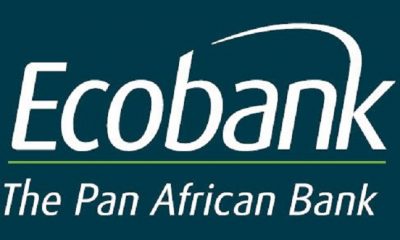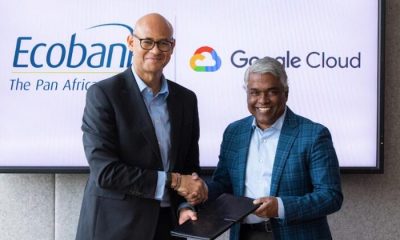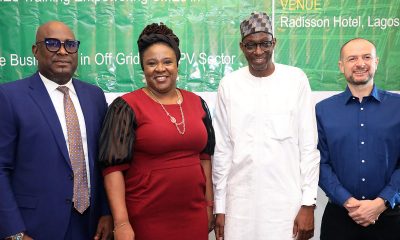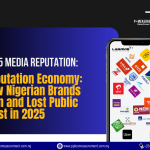Showbiz
Ecobank Backs Future Face Africa Model Talent Search
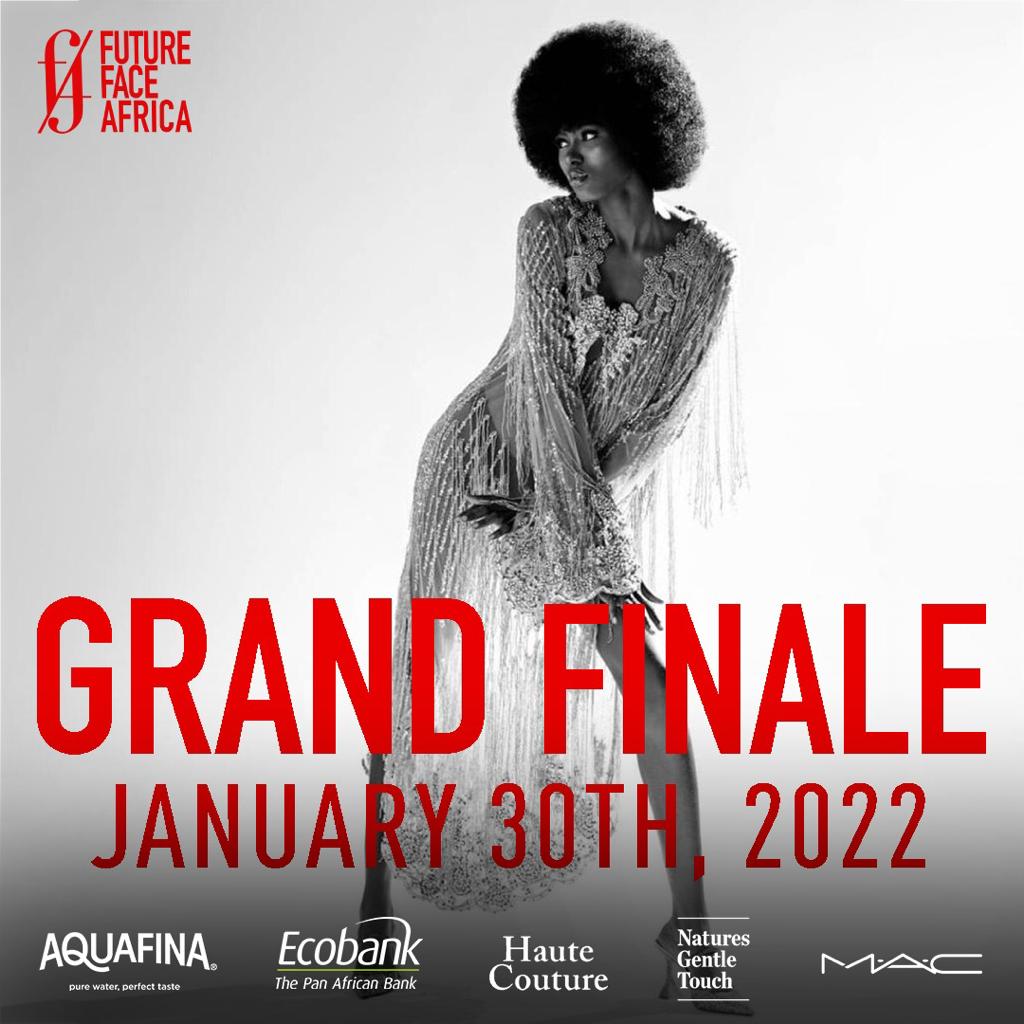
By Modupe Gbadeyanka
All is now set for the grand finale of the Future Face Africa (FFA) model talent search taking place at the Eko Hotel and Suites, Lagos on Sunday, January 30, 2022.
The event has the full support of Ecobank Nigeria, ensuring that the winner gets a good platform to shine and have a chance to get a two-year modelling contract with a top international modelling agency, as well as a $5,000 cash prize.
It was gathered that after a rigorous selection process involving physical castings in eight African countries, as well as thousands of digital applications from all over the world, the Future Face Africa judges have selected 18 finalists who will be flown into Lagos, for a shot at turning their modelling aspirations into a reality.
Explaining why the lender threw its weight behind the programme, the Head Marketing and Corporate Communication of Ecobank Nigeria, Mr Babajide Sipe, said the “Future Face Africa aligns with Ecobank’s commitment to providing a veritable platform for actualizing the dreams of many young talents who will participate in the competition by gracing the international stage and ultimately interested in the fashion and beauty industry.”
Future Face Africa, no doubt Africa’s largest model search competition is headed by Elizabeth Isiorho, a pioneer in the African modelling industry and the founder of Beth Model Management Africa, Africa’s largest modelling agency, and the organisation behind Future Face Africa.
Over the past 17 years, Beth Model Management has served as an industry pacesetter, helping to launch the careers of dozens of internationally placed models, and has cultivated some of the best talents in the industry, such as Mayowa Nicholas and Davidson Obennebo.
Elizabeth Isiorho previously organised Elite Model Look Nigeria, but after a 2-year hiatus, re-emerged with Future Face Africa to expand her model search beyond the borders of Nigeria alone, and offer a wider range of hopefuls a chance at success.
FFA will be giving opportunities to people from various countries, backgrounds and skin tones, aiming to go beyond the buzzwords of “diversity” and “inclusivity” to create an initiative that truly celebrates the range of beauty that the industry has to offer.
FFA will be equipping selected models with the knowledge and skills to achieve international success and to have long-lasting careers in a very competitive industry. For these models, Future Face Africa will be a once-in-a-lifetime opportunity that could change their lives forever.
Showbiz
Facebook Convenes 1,000 Innovators, Others for 2026 African Creators Summit
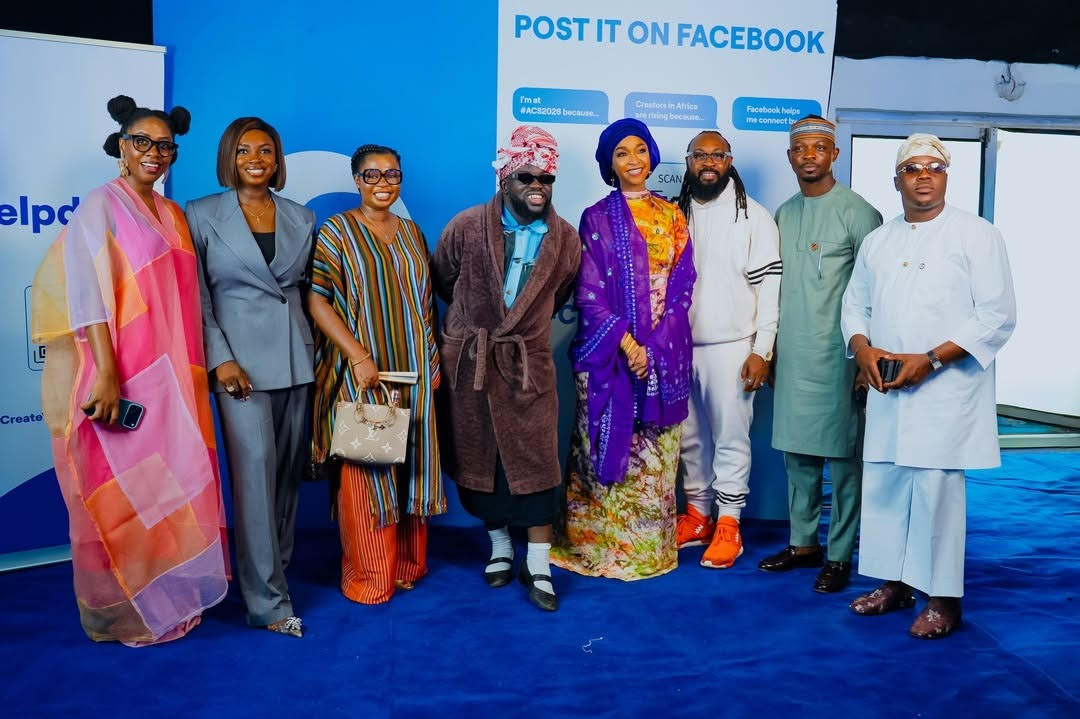
By Modupe Gbadeyanka
Over 1,000 creators, storytellers, innovators, and digital entrepreneurs from across Africa were brought together in Lagos recently for the 2026 African Creators Summit organised by Facebook.
The event was put together by the social networking platform to brainstorm on how to share the future of the continent’s creative economy.
It was also to empower participants with tools and resources to reach wider audiences, build meaningful communities, and earn sustainably from their content.
It was the second consecutive year Facebook is delivering a dynamic creator experience that reinforced its ongoing commitment to Africa’s growing creative economy.
As the platform with the largest network of people who can reach a massive audience, Facebook has always been about connection and continues to empower creators to connect more deeply with actual people and earn real money across all the content formats they share.
Some of the notable creators at the summit were Abiri Tobi Festus (Folagade Banks), Ify’s Kitchen, Nons Miraj, Nancy Umeh, Lolo Mbakara, Broda Shaggi, Gilmooree, Jenni Frank, Cute Abiola, One Khan, and King – Ana, among others.
Commenting on the initiative, the Head of Communications for Sub-Saharan Africa at Meta, Oluwasola Obagbemi, said, “Our presence at the African Creators Summit was about meeting creators where they are, creating meaningful moments of connection, and demonstrating how Facebook empowers creators to succeed.
“Seeing creators engage, share their stories, and create content live at the booth highlights how powerful these spaces are in strengthening Africa’s creator community.
“Creators who haven’t fully explored Facebook are missing out on real opportunities. Over the past few years, we’ve introduced features that support monetisation, audience growth and discovery, and community building, and we’re doubling down on making it even easier for creators who share original and engaging content to succeed.”
Showbiz
Connections Tested as Heartbeat Heats Up in Episode 3
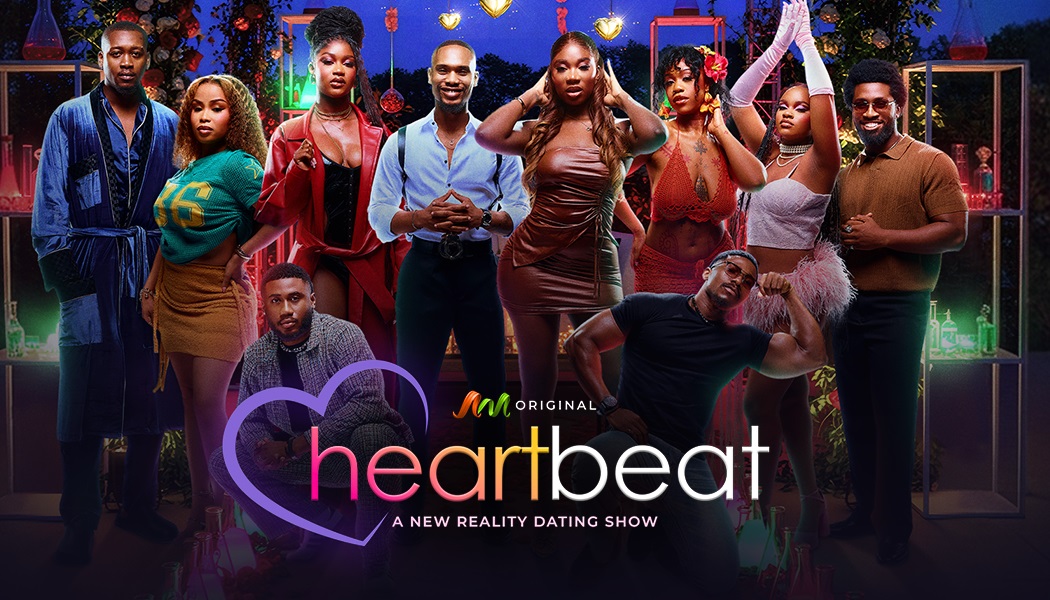
Episode 3 of Heartbeat picked up right where the drama left off, and this time, emotions ran even higher as new games, unexpected pairings, and bold choices changed the energy in the Love Pad.
After winning the kissing challenge, Igwe claimed the Love Nest key and chose Toria for a private night together. While the pair shared a cosy evening, the morning after came with mixed feelings. Toria admitted she felt uncomfortable being so exposed on camera and began questioning their connection, while Igwe seemed ready to move on, saying the spark just wasn’t there anymore. Just like that, what looked promising quickly cooled off.
But the house didn’t stay quiet for long. The singles were thrown into the Love Dip game, where everyone picked numbers, and anyone who matched automatically became partners for the night. The random twist led to surprising combinations across the house, forcing some singles to step outside their comfort zones.
Still, not everyone stuck to the rules. Despite being paired with other people, Ken and Latifah couldn’t resist each other. The two quietly slipped away from their assigned partners and ended up cuddling on the couch, proving their connection might be stronger than they’d like to admit.
Elsewhere, different emotions were brewing. Alvin’s calm and unreadable personality left Shekinah confused about where they stood, while Chidera and Kenna grew even closer, deciding to focus solely on each other rather than risk outside distractions. Their decision to “lock in” made them one of the most stable pairs in the house.
Then came a playful but revealing poolside card game, where singles had to complete daring or flirty tasks. From seductive dances to bold moves meant to send messages, the challenge stirred jealousy, laughter, and side-eyes across the group. Feelings were tested in real time, and it became obvious that everyone was still very much exploring their options.
But the biggest moment of the night was the official Heartbeat Game.
In this challenge, each male sat in the “hot seat” while the women had one minute each to impress him using props from a mystery box, from scarves to feathers and other playful items. The goal was simple: charm, tease, and create a spark. After every round, the men secretly scored each woman over ten.
The woman with the highest total score would win the ultimate prize, the Love Nest key and the power to choose who she’d spend the night with. One by one, the scores rolled in, and confidence filled the room as the women gave it their all.
When the final results were counted, Latifah came out on top, earning the highest ratings and securing the key. With all the power now in her hands, she had a major decision to make: return to Ken, the connection everyone already knew about, Henri, her new paired partner or Igwe, to explore someone new.
In true Heartbeat fashion, she chose unpredictability. Latifah made a bold decision about who she would take into the Love Nest, leaving Ken visibly stunned and the rest of the house buzzing. But who did she actually pick? Tune in next week to find out.
If Episode 3 proved anything, it’s that comfort zones don’t last long in Heartbeat, and one bold choice can change everything.
Catch Heartbeat every Sunday at 9 pm on Africa Magic Showcase, GOtv Channel 8.
To upgrade, subscribe, or reconnect, download the MyGOtv App or dial *288#. For catch-up and on-the-go viewing, download the GOtv Stream App and enjoy your favourite shows anytime, anywhere.
Showbiz
From Igwe’s Power Move to Latifa’s Shocking Decision, Episode Three Refuses to Calm Down

Episode three of Africa Magic Heartbeat picked up exactly where the tension left off, and if episode two was about shifting power, this one was about using it.
After winning the “Score the Kiss” challenge, Igwe made his choice and selected Toria to join him in the Love Nest. The decision felt deliberate and a little dangerous, confirming his growing reputation as the wildcard of the season. As the rest of the house watched, it became clear that Igwe was no longer just reacting to attention. He was actively shaping the chaos.
With the Love Nest decided, the remaining singles were left to chance. Numbers were drawn, and new pairings emerged for the night. Alvin found himself paired with Hilda, Queen Latifa with Henri, and Ken with Shekinah. But the pairing that raised eyebrows was Chidera and Kena, who once again picked matching numbers. At this point, it felt less like a coincidence and more like the universe insisting on unfinished business.
The next morning brought a poolside game that quickly turned uncomfortable. When Queen Latifa was asked to suck Igwe’s toe and did so without hesitation, all eyes shifted to Ken. The moment lingered, and the tension was unmistakable.
Things escalated further when it was Igwe’s turn. Asked to walk up to the person he found most attractive and kiss them, he initially moved toward Chidera, clearly enjoying the suspense. At the last second, he switched direction and kissed Queen Latifa instead. The reaction was immediate. Ken later admitted it was difficult to watch, and episode three made it clear that jealousy was no longer subtle.
As the day progressed, it became obvious that some of the earlier pairings were already losing steam. They struggled to find rhythm, except for Chidera and Kena who continued growing closer. Elsewhere, Shekinah appeared to shift her focus toward Igwe, a move that felt less about connection and more about sending a message to Alvin.
Toria, meanwhile, pulled Alvin aside for a heart-to-heart conversation. She openly expressed her discomfort, pointing out that he seemed torn between her and Shekinah. Calling herself possessive and jealous, she asked him to be honest and clear the air. Before the conversation could settle, Shekinah arrived, and the tension became too much. Toria chose to walk away.
As night fell, host Seyitan Atigarin introduced a new Heartbeat challenge centred on seductive dancing. This time, the women took the floor while the men watched and scored. According to Seyitan, the goal was simple: explore, take risks, and avoid locking into early comfort zones. Toria sat out the challenge due to feeling unwell, but the rest of the ladies came prepared.
Queen Latifa dominated the round, repeatedly scoring perfect tens from the men. When the final scores were tallied, she emerged the winner and earned the power to choose who would join her in the Love Nest.
All eyes turned to Ken. But Latifa had other plans.
Instead of choosing familiarity, she announced she wanted fresh blood. The decision landed like a bombshell and brought episode three to a close on a cliffhanger that promised even more disruption.
If episode three proved anything, it is that comfort does not last long on Heartbeat. Power keeps changing hands, jealousy is no longer hidden, and choices are starting to carry real consequences.
Catch the next episode of Heartbeat on Africa Magic Showcase, DStv Channel 151 and GOtv Channel 8, at 9 pm on Sunday. If you missed episode 3, catch up on Showmax, the DStv or GOtv Stream apps or via the Catch Up feature on your decoder.
-

 Feature/OPED6 years ago
Feature/OPED6 years agoDavos was Different this year
-
Travel/Tourism9 years ago
Lagos Seals Western Lodge Hotel In Ikorodu
-

 Showbiz3 years ago
Showbiz3 years agoEstranged Lover Releases Videos of Empress Njamah Bathing
-

 Banking8 years ago
Banking8 years agoSort Codes of GTBank Branches in Nigeria
-

 Economy3 years ago
Economy3 years agoSubsidy Removal: CNG at N130 Per Litre Cheaper Than Petrol—IPMAN
-

 Banking3 years ago
Banking3 years agoSort Codes of UBA Branches in Nigeria
-

 Banking3 years ago
Banking3 years agoFirst Bank Announces Planned Downtime
-

 Sports3 years ago
Sports3 years agoHighest Paid Nigerian Footballer – How Much Do Nigerian Footballers Earn


